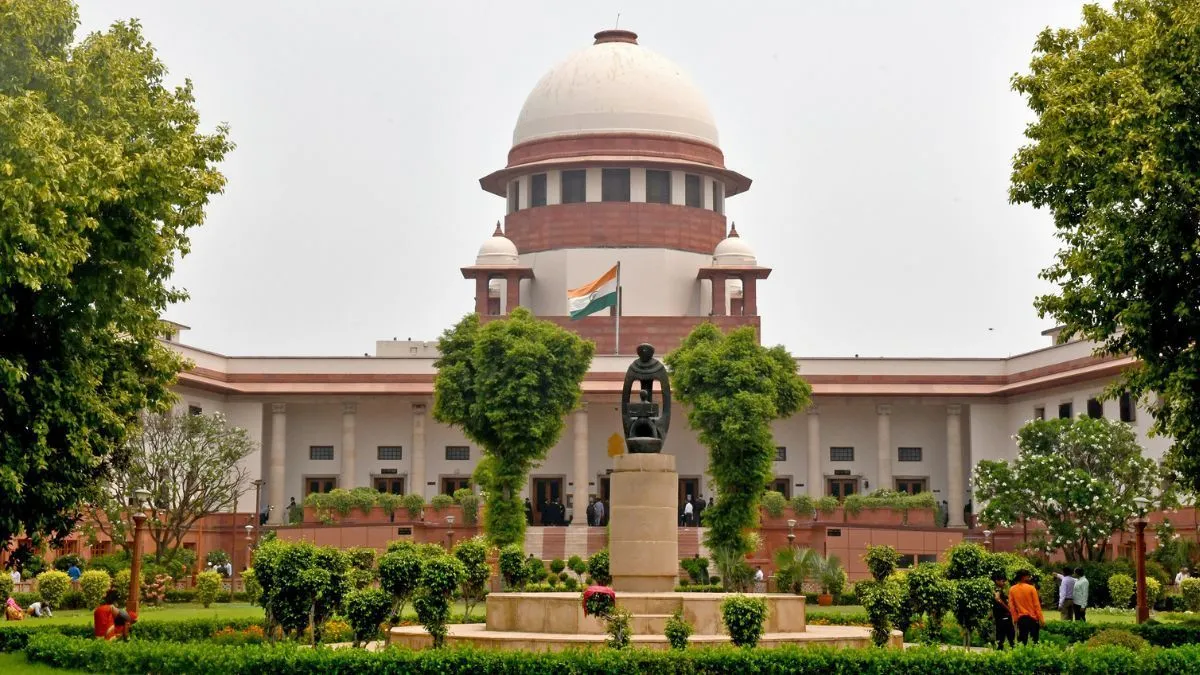- By Imran Zafar
- Tue, 24 Sep 2024 11:22 PM (IST)
- Source:JND
The Supreme Court on Tuesday strongly criticised the Punjab government for expanding the non-resident Indian (NRI) quota in medical colleges, describing it as a “fraud” that undermines merit-based admissions. The apex court expressed concern that this policy allows less deserving candidates to secure admissions, displacing more meritorious students.
A bench headed by Chief Justice of India Dhananjaya Y Chandrachud, along with Justices JB Pardiwala and Manoj Misra, dismissed petitions challenging a Punjab and Haryana high court decision, which had quashed the Punjab government's move to extend the NRI quota to include distant relatives of NRIs, such as uncles, aunts, grandparents, and cousins. The court labeled the broadening of the NRI quota as an exploitation of the education system.
What Is NRI Quota?
The NRI Quota refers to a special reservation or allocation of seats for non-resident Indians (NRIs), Persons of Indian Origin (PIOs) and Overseas Citizens of India (OCIs) in various sectors, particularly in educational institutions. Under this quota, NRIs and PIOs can secure admissions without the requirement to appear for entrance exams, unlike resident students.
Many Indian engineering and medical colleges reserve a percentage of seats for NRI students, enabling them to bypass standard admission procedures and gain entry based on other specific criteria. The intention behind this quota is to provide NRIs with opportunities to access education in India, while also potentially contributing to the country's economy through higher fees.
Eligibility Criteria For NRI Quota
To qualify for the NRI Quota, applicants must meet several conditions:
- The candidate or their parents must provide valid proof of NRI status, such as employment certificates, visas or passports.
- Applicants must meet specific academic criteria based on the course they are applying for. For instance, medical courses may require candidates to have studied biology and chemistry.
- Institutions often require NRI candidates to demonstrate financial capability, as the fees under this quota are usually higher than regular fees.
ALSO READ: 'Bring Back Farm Laws': Kangana Ranaut's Remarks Stir Fresh Row; Oppn Says 'BJP Using Her As Proxy'
Supreme Court On Punjab's NRI Quota Expansion
The Supreme Court’s critical remarks stemmed from a Punjab government notification issued on August 20, which expanded the definition of NRI candidates to include distant relatives. On September 11, the Punjab and Haryana high court quashed this notification, ruling that the move was unjustified and deviated from the original purpose of the NRI quota. This quota was originally intended to provide genuine NRIs the chance to study in India.
The Supreme Court condemned this expansion, calling it a "fraud" that undermined the fairness of the admission process. ''This broad interpretation of the NRI quota is a money-spinning tactic that harms the integrity of our education system,'' the bench stated, emphasising that allowing distant relatives to qualify disregards merit and serves to exploit the system.
In dismissing the petitions, Chief Justice Chandrachud remarked, "This fraud has to come to an end. The NRI quota was never meant to operate in this manner. More deserving students are being sidelined, and this must stop now."


